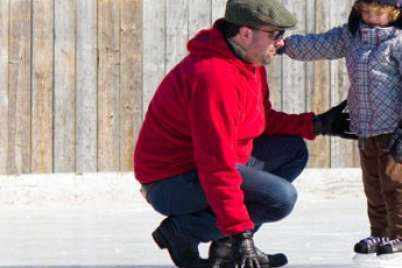
Why gardening is a great activity for kids
Spring is an exciting time on our family farm. The kids spend lots of time outside climbing trees, throwing stones into our pond, running around, and playing for hours on end. It’s also the time when we get back into our vegetable garden after a winter of planning.
With over a quarter of an acre to maintain it’s great to have two extra sets of hands, but we’re not the only ones reaping the benefits of their help in the garden. Whenever they garden, kids are developing great movement skills (just like when they help out inside the house).
Skills that kids develop when gardening
- Grasping: Even babies can come in the garden and practice! Let your child reach for tools, or grab handfuls of dirt to explore.
- Balance: In large gardens, pathways are minimized to maximize the growing space. Moving through these tight rows helps kids learn balance, especially in tight spaces where the plants have overgrown their path.
- Lifting and lowering objects: Gardening requires lots of lifting and lowering. Kids can master this by using a watering can, manipulating small hand tools, or even using a shovel to add things like compost into the garden.
- Fine motor skills: Kids love to place seeds into the earth. Big seeds like peas, beans, and corn are easy for small hands to grasp and germinate quickly.
- Striking: Grab a small spade like a lightweight transplanting one and allow kids to dig in.
- Pulling the hose around: Moving the hose to position the sprinkler is one job kids can help with and it will help them gain strength and agility.
- Object manipulation: We’ve modified a few hand tools around our farm by cutting the wooden handle to an appropriate kid-sized height. This allows our children to help with hoeing and cultivating using the exact same tools we use.
Gardening also teaches kids . . .
Along with the physical skills and activity kids get from gardening, there are lots of other great benefits, such as:
- Healthy-eating habits: A carrot gently coaxed from the earth just moments before eating is flavourful, and there is no comparison to its sister from the grocery store. After many days spent awaiting harvest day, most children are eager to try their own raised vegetables and fruits. This makes a simple segue to more fresh meals and encourages healthy eating from their own crop.
- Organizational skills and STEM learning: Gardens usually have an element of precision through rows, measurements between plants or seeds, and planned walkways. Organizing a new garden takes some skills in mathematics and measuring. Learning more about plant life cycles, weather patterns, and even insects can peak scientific curiosity and discovery.
- Stress relief: Mycobacterium vaccae is the substance found in soil microbes, which is currently under study. The bacterium may stimulate serotonin production, which makes you relaxed and happier.
Your kids can reap the benefits of gardening even if you don’t have a large plot of land. Carve out whatever space you can to get them started and/or look for opportunities to contribute to a community garden near you.





